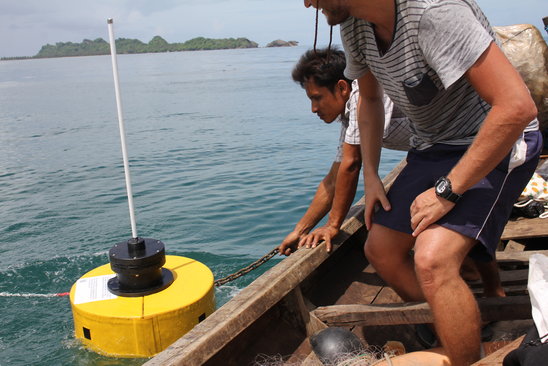WaveDroid
Easy wave measurement for coastal development
Myanmar’s unique long coastline offers ample opportunities for development, including the establishment of deep sea ports and a flourishing tourism industry. At the same time this strongly calls for clarity on how these developments should take place to ensure sustainable economic successes.
Waves have a huge influence on coastal activities. For sea ports, they largely determine how ships should maneuver and where breakwaters should be placed. Tourist resorts require attractive beaches that do not suffer from strong erosion due to wave action.
So far, information on waves in Myanmar has been scarce and data collection was expensive, difficult and involved heavy work. WaveDroid is an accurate, lightweight and low-cost alternative: with a small motion sensor it measures wave speed, height and frequency. It is 10 times cheaper than the regular options, easy to install, provides real-time data and has GPS tracking to limit the risk of theft.
Testing WaveDroid
Wavedroid 1.0 was tested at Ngapali beach to understand local beach erosion issues and WaveDroid 2.0 has been tested by the Myanmar Port Authority for an off-shore LNG loading point at Yangon Port. Testing results were excellent, WaveDroid provided accurate real-life data under all circumstances.
Using WaveDroid
Examples of where WaveDroid could be used are: wave climate studies (port development, coastal development and protection) and operational wave monitoring (port development and other coastal construction works).
Potential Clients
National and local government authorities (e.g. cities, hydrology departments, meteorological departments and urban planning); International donors; Port and transport authorities; Consultancy and engineering firms; Universities and research institutes; Private sector (e.g. industry, energy providers, farmers and contractors).

